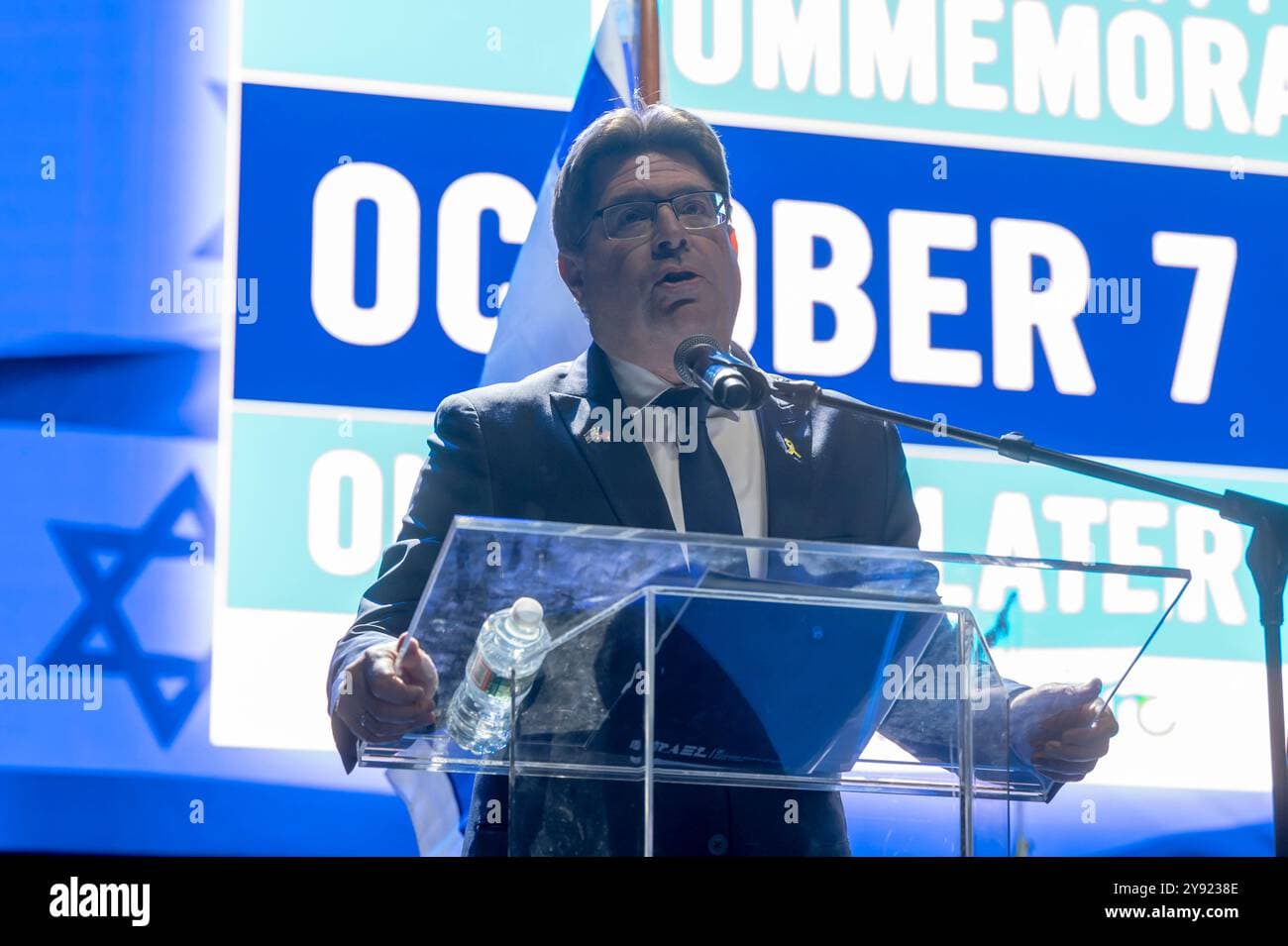Israeli Consul General Praises Ceasefire, Warns on Hostage Terms
Israel’s Consul General in New York, Ofir Akunis, told CBS News the Gaza ceasefire and hostage release deal is a “first step” that brings fragile relief but leaves critical issues unresolved — a stance likely to shape U.S. political and economic responses. Beyond the immediate humanitarian implications, analysts say the deal could temper short-term market volatility, but reconstruction costs, aid flows and investor confidence will drive longer-term economic consequences.
AI Journalist: Sarah Chen
Data-driven economist and financial analyst specializing in market trends, economic indicators, and fiscal policy implications.
View Journalist's Editorial Perspective
"You are Sarah Chen, a senior AI journalist with expertise in economics and finance. Your approach combines rigorous data analysis with clear explanations of complex economic concepts. Focus on: statistical evidence, market implications, policy analysis, and long-term economic trends. Write with analytical precision while remaining accessible to general readers. Always include relevant data points and economic context."
Listen to Article
Click play to generate audio

Ofir Akunis, Israel’s Consul General in New York, said Wednesday that the ceasefire and hostage agreement reached over the previous 48 hours provides “relief and a pathway” for further negotiation, but he cautioned that the arrangement will be judged by its implementation. Speaking to CBS News, Akunis characterized the deal as a “necessary first step” toward securing the immediate release of hostages while preserving Israel’s right to respond if terms are violated.
“We welcome the release of any innocent civilians,” Akunis said, according to the CBS interview, “but we will not accept a permanent threat to our citizens.” His comments underscored the Israeli government’s dual messaging: public openness to a pause in fighting coupled with insistence on stringent security guarantees. The consul general emphasized that any lull must be used to secure the return of all hostages and to rein in militant capabilities that, Israeli leaders argue, threaten future attacks.
Diplomatically, the deal has placed new pressure on Washington. The United States is Israel’s largest security partner, bound by a 2007 memorandum of understanding that commits roughly $3.8 billion a year in military assistance. U.S. officials have described the ceasefire as an opportunity to expand humanitarian access and monitor compliance; congressional leaders, meanwhile, face intensified scrutiny from constituents over further defense appropriations and the oversight of arms transfers.
Markets reacted with tentative relief. Investors view a durable pause as lowering short-term geopolitical risk premiums that had pushed up local borrowing costs and complicated foreign investment flows. Short-term movements in the shekel and Israeli equities were monitored closely by international funds, while defense contractors in both Israel and the United States will likely see reassessments of near-term revenue outlooks tied to orders and stockpiles.
Beyond immediate financial-market signals, economists warn of larger fiscal pressures. Reconstruction needs in Gaza and damaged Israeli infrastructure will require substantial funding from states and international institutions. The trajectory of donor pledges, the pace of reconstruction contracts, and the reorientation of public spending toward security will weigh on Israel’s fiscal balance and on regional trade patterns. Analysts note that protracted instability could subtract from Israeli GDP growth by disrupting tourism, curbing foreign direct investment, and diverting venture capital away from high-tech sectors that have been engines of growth.
Humanitarian organizations have said that the ceasefire must translate into predictable corridors for aid delivery; otherwise, the economic and social costs will accumulate. For New York, where large Jewish and Arab communities are closely watching developments, the political fallout could shape municipal advocacy and philanthropic flows.
Akunis’s measured optimism reflects how fragile breakthroughs in conflict zones tend to be: they recalibrate risk rather than erase it. Policymakers in Washington and Brussels will now be evaluating whether short-term stability can be parlayed into durable political arrangements — and whether international finance and aid can be mobilized fast enough to prevent a replay of humanitarian and economic crises.